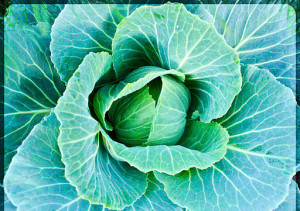12 Dec The Many Health Benefits of Probiotics, and a Surprising Probiotic-Rich Food
You’ve probably seen the commercials for yogurts with “active” cultures of probiotics, complete with diagrams of the digestive system showing how probiotics work. What you may not know is that the health benefits of probiotics go far beyond the digestive tract. And you also may not know that one of the best sources of probiotics is a food that Germans have been eating for hundreds of years.
 Probiotics are bacteria known to be beneficial to your digestive system, and more and more research is indicating positive side effects of probiotics that reach far beyond the digestive tract. These benefits include decreased cholesterol and blood pressure, relief of lactose intolerance, an improved immune system, decreased inflammation (including a decreased occurrence of IBS), lowered mortality in premature infants, help with skin disorders such as eczema, and more.
Probiotics are bacteria known to be beneficial to your digestive system, and more and more research is indicating positive side effects of probiotics that reach far beyond the digestive tract. These benefits include decreased cholesterol and blood pressure, relief of lactose intolerance, an improved immune system, decreased inflammation (including a decreased occurrence of IBS), lowered mortality in premature infants, help with skin disorders such as eczema, and more.
It’s a safe bet that most Americans are low on their probiotics – or “healthy gut flora” as the naturalists might say. Taking antibiotics will kill whatever you might already have, and there are probably numerous other things in our modern diet and environment that knock the little guys out. So, if you’re not feeling 100% in any way – or even if you are – adding some probiotics to your diet will most likely give you a boost, and possibly much more.
Probiotics come in many forms. Most commonly, doctors recommend eating yogurt, or popping a pill. However, one of the most effective and least expensive methods for increasing healthy digestive bacteria is actually…
(drum roll, please)
Sauerkraut.
 That’s right – the shredded cabbage stuff that you put on your bratwursts or Reuben sandwich is actually – brace yourself – a health food. According to a December, 2007 study, saurkraut can contain up to 13 different types of tummy-friendly bacteria, which is far more than any pill you’re likely to pop or yogurt you might eat. And keeping all of those different “bugs” in a healthy supply in your digestive system may very well lead to some much desired improvement in your health and well-being.
That’s right – the shredded cabbage stuff that you put on your bratwursts or Reuben sandwich is actually – brace yourself – a health food. According to a December, 2007 study, saurkraut can contain up to 13 different types of tummy-friendly bacteria, which is far more than any pill you’re likely to pop or yogurt you might eat. And keeping all of those different “bugs” in a healthy supply in your digestive system may very well lead to some much desired improvement in your health and well-being.
Now, not just any sauerkraut will do. Apparently, American companies don’t ferment it correctly, so Americanized saurkraut doesn’t contain the highest levels of healthy probiotics. Fortunately, the Germans, who invented the stuff in the first place, know how to do it right. Look for “real” German sauerkraut, like that available at Aldi for $1.69, or, for the best results, you can make your own, using the recipe that we’ve included below, courtesy of Trudie Crawford, RN, ND.
Whatever you do, don’t heat the sauerkraut, as that will kill the microorganisms and completely defeat the purpose! You can add it to sandwiches, eat with a cracker, or just down it by the spoonful. Regardless of how you work it into your diet, most adults should consume two tablespoons or more every day.
Homemade Sauerkraut:
1 head of shredded cabbage
3 med. grated carrots
3 small grated beets
Grated onion to preference
1 large clove of garlic, pressed
4 large grated radishes
1 inch grated ginger
Juice of one lemon
1 Tbsp. sea salt
Mix all ingredients, except sea salt, well.
Add sea salt. Allow to sit for a few minutes and then pound with a mallet to get the juices flowing!
Add 1/4 C whey (can make your own from whole milk yogurt)
Stir well and pack tightly in a quart jar until juices come up and cover the kraut. Set on the counter for 2-4 days until bubbly. Refrigerate and enjoy!
Sources:
http://en.wikipedia.org/wiki/Probiotic
http://www.livestrong.com/article/538697-is-sauerkraut-better-than-probiotics-in-the-store/





Can Buttered Coffee Increase Energy and Focus? - Exact Insure
Posted at 16:14h, 16 January[…] The Many Health Benefits of Probiotics […]